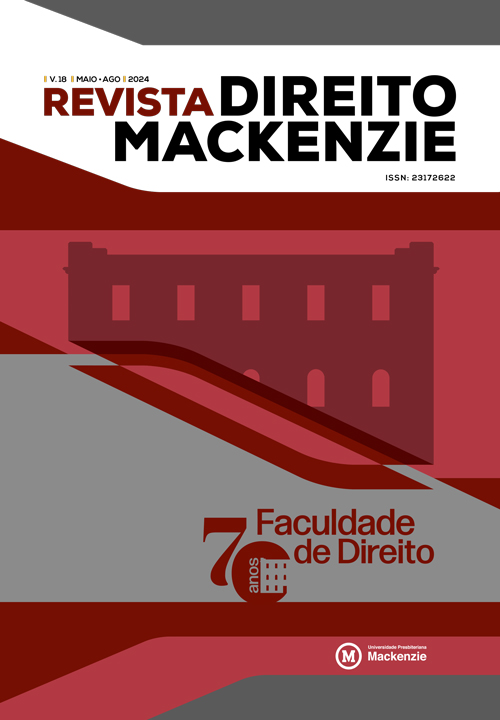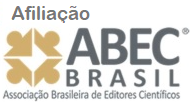ELECTRONIC VOTING AND PRINTED BALLOTS IN EUROPEAN LEGAL PERSPECTIVE:
THE PRINCIPLES OF ELECT ORAL SINCERITY AND TRUSTWORTHINESS
Keywords:
Electronic voting; printed ballots; democracy; comparative law; Brazil; European law.Abstract
The discussion on electronic voting, its reliability, and its implications
for democracy has been prominent in several European countries. In 2017, during
his presidential campaign, Emmanuel Macron advocated for the “digitalization
of French democracy.” In contrast, the courts in Germany and Austria chose to
discontinue their electronic voting experiments, while Switzerland established a
legislative framework to facilitate its broader adoption, and Estonia implemented
the system following a brief trial period. In Brazil, this issue has not been
thoroughly examined from the legal perspective explored in this paper, which
focuses on democracy and popular participation as interpreted by various European
Supreme Courts. A comparative analysis of these international experiences
is crucial to demonstrate that the introduction of printed ballots in Brazil would
align with the practices of leading democracies and restore the principle of trust
in the electoral process.
References
ANZIANI, A.; LEFÈVRE, A. Le vote électronique. Rapport d’information fait au nom de la commission des lois n° 445, 2013-2014. p. 15-16, 25.
BARRAT, J. The French conseil constitutionnel and electronic voting. In: BARRAT, J.; MAURER, A. D. (dir.). E-voting case law. Londres: Ashgate, 2015.
BUCHSTEIN, H. Online democracy. Is it viable? Is it desirable? Internet voting and normative democratic theory. In: KERSTING, N.; BALDERSHEIM, N. (dir.). Electronic voting and democracy: a comparative analysis. Basingstoke: Palgrave Macmillan, 2004.
BURGORGUE-LARSEN, L.; COVILLE, O. Manuel de droit de l’Union Européenne. 5. éd. Paris: LGDJ, 2021.
CAZALS, M. La dématérialisation du vote: un nouvel horizon pour la démocratie représentative? Revue du Droit Public et de La Science Politique en France et à l’Étranger, n. 1, p. 185-210, 2008.
DÉLOYE, Y.; IHL, O. L’acte de vote. Paris: Presses de Sciences-Po, 2008.
GARRONE, R. Le patrimoine électoral européen: une décennie d’expérience de la Commission de Venise dans le domaine électoral. Revue du Droit Public et de La Science Politique en France et à l’Étranger, n. 5, p. 1417-1454, 2001.
MARTIN, D.; LENAERTS, K. Le droit de l'Union européenne. 6. éd. Bruxelles: Éditions de l’Université de Bruxelles, 2023.
MOREL, B. Les enseignements des expériences européennes du vote électronique. Revue Française de Droit Constitutionnel, n. 114, p. 371-394, 2018.
NGUYEN, V. T.; SIMON, D. Droit matériel de l'Union Européenne. 11. éd. Paris: Dalloz, 2023.
PESCATORE, P.; ROUSSEAU, A. Les grands arrêts de la jurisprudence européenne. 8. éd. Paris: LexisNexis, 2022.
TOULEMONDE, G. Le vote électronique, d’imprécisions en incertitudes. JCP A , p. 34-36, 2009.
TOULEMONDE, G. Le vote électronique, d’imprécisions en incertitudes. JCP A, p. 34-36, 2009.
Downloads
Published
Issue
Section
License
Copyright (c) 2024 Juliano Barra, Benjamin Morel

This work is licensed under a Creative Commons Attribution 4.0 International License.
The copyright of the articles published in Mackenzie Law Review belongs to the authors, who grant Mackenzie Presbyterian University the rights of publication of the contents, and the assignment takes effect upon submission of the article, or work in similar form, to the electronic system of institutional publications. The journal reserves the right to make normative, orthographic, and grammatical alterations to the originals, with the aim of maintaining the cultured standard of the language, respecting, however, the style of the authors. The content reported and the opinions expressed by the authors of the articles are their exclusive responsibility.











